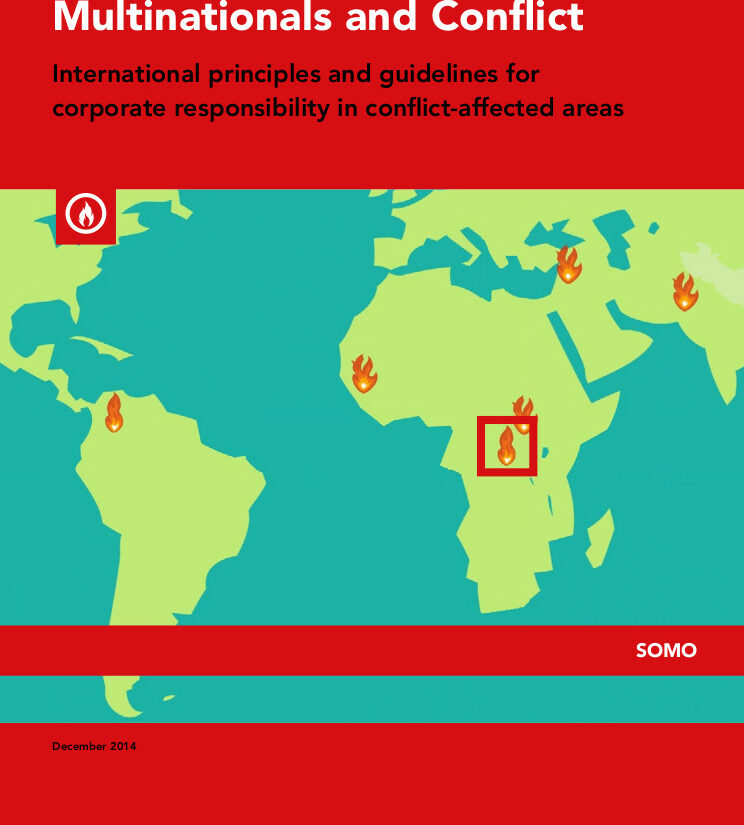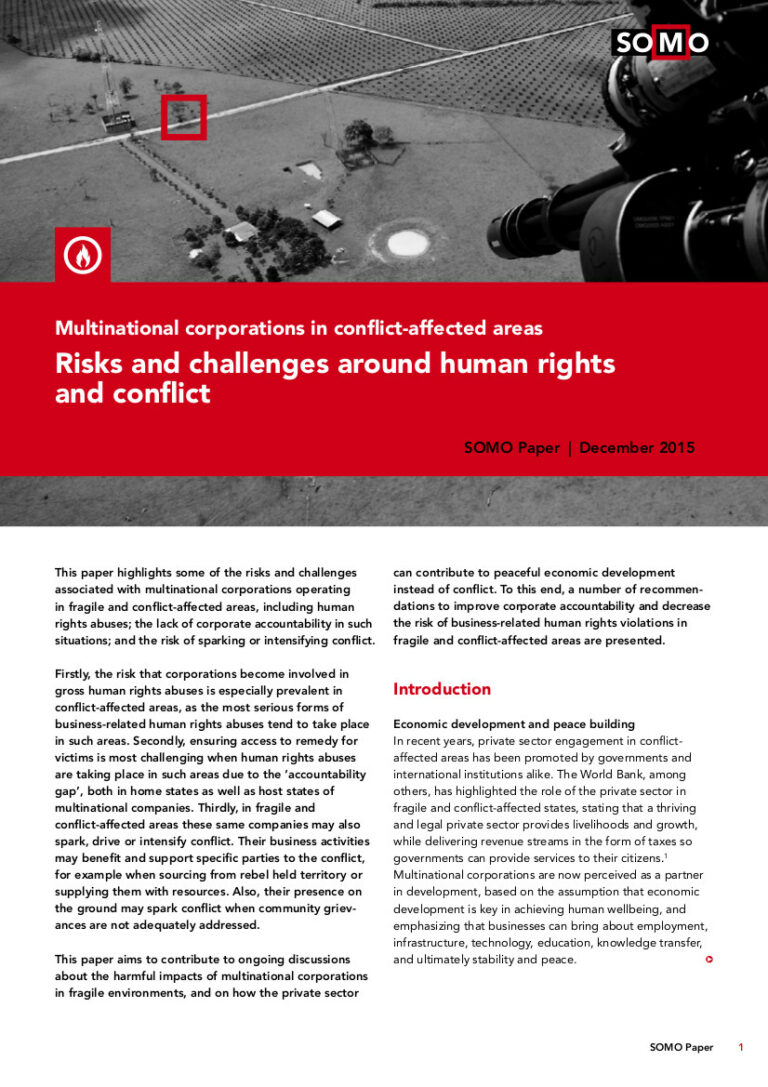
Multinationals and Conflict
International principles and guidelines for corporate responsibility in conflict-affected areas
This publication aims to bring together existing knowledge about 24 International principles and guidelines for companies operating in conflict-affected areas. The main purpose is to give a relevant overview for use by affected communities and workers in their dealings with companies in case of business-related human right violations. Ultimately, this paper hopes to contribute to the private sectors potential of making a positive contribution to sustainable development, peace and security.
Over the past 15 years, a plethora of internationally accepted principles and guidelines have been developed for business and human rights, culminating in the adoption of the United Nations Guiding Principles for Business and Human Rights in 2011. Many of these principles have special relevance for conflict-affected areas, as the risk of gross human rights abuse is most prevalent in those areas. However, this multitude of guidelines with relevance for conflict-affected areas has not visibly improved multinational companies track record in human rights violations and there are still some major problems with the existing principles and guidelines, which are analyzed in this paper.
Basically, there is need to provide more clarity on how to implement the different existing international principles and guidelines. It is therefore recommended to hold a discussion on the best way forward, including the possibility of developing a specific Guidance for fragile and conflict-affected areas, in which all conflict specific elements of the OECD Guidelines and the UN Guiding Principles are brought together.
Do you need more information?
-

Ilona Hartlief
Researcher
Publication
Related content
-
Reality Check Published on:
 Ilona HartliefPosted in category:Publication
Ilona HartliefPosted in category:Publication Ilona Hartlief
Ilona Hartlief
-

-
Risks and challenges around human rights and conflict Published on:A.M SchuitPosted in category:PublicationA.M Schuit

-


